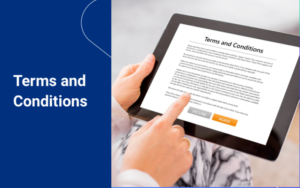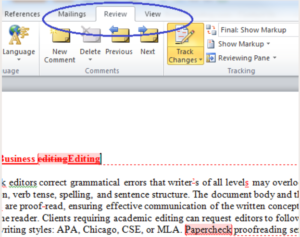Oracle Procurement Contracts is a module that is often misunderstood and hence underutilized. One common misconception is that this module is complex to implement and use leading clients to keep their contracts outside of Oracle.
Some of the common pain points associated with contracts being offline are as follows:
- Inability to quickly search for relevant contracts
- Inability to track contract expiry leading to contracts being outdated
- Nonstandardized and hard-coded terms and conditions on Purchasing and Sourcing documents.
This blog aims to illustrate simple examples of how Procurement contracts can be used and are highly relevant to all businesses.
The 2 pillars of Procurement Contracts:
Contract Library: This is where the contract verbiage is stored in the form of clauses and templates. These clauses and templates are created, maintained, and approved in the library. These can be used on Purchasing, Sourcing documents, or on standalone contracts (Not related to purchasing and sourcing documents).
Contract Workbench: This is the repository where standalone contracts can be created, maintained, and signed between your organization and the Supplier.
Use Cases for Oracle Procurement Contracts:
 Use Case 1: Create and Maintain PO and Sourcing Terms and Conditions
Use Case 1: Create and Maintain PO and Sourcing Terms and Conditions
a) The Contract Library can be used to create and maintain clauses that can be applied to a contract template which can be applied on a Purchasing or Sourcing document such as Standard Purchase Order, Blanket Purchase Agreement, RFI, RFQ, etc.
b) These clauses and templates, when created/modified, are routed for approval. Oracle has provided a highly configurable approval hierarchy for clause and template approvals. For Example, based on clause type, the clauses can be routed to different people within the organization for approval.
c) Oracle maintains Version control, and this allows the users of the contract library to review the differences between past and current versions
d) Clauses/Templates can be ‘Global’ or ‘Local,’ implying that they can be created in one Operating unit/Business unit and adopted in others. In such a case, the Clause/Template created in the source Operating Unit/Business unit becomes the ‘Global’ clause. The local versions adopted in other Operating units/business units become the ‘Local’ clauses. This is extremely helpful in minimizing the effort to create and maintain clauses. New versions can just be created just once in the ‘Global’ Operating unit/business unit and adopted in local operating units.
e) Oracle provides the capability to auto-apply contract templates to the purchasing/sourcing documents. Buyers may or may not be able to edit the clauses on the actual documents depending on setups. If, as an organization, you want to allow the buyers to update/delete the clauses on the actual purchasing documents, Oracle allows review of policy deviations. The buyer is also able to view if there are more recent versions of the clauses which are being applied on the purchasing and sourcing document
f) Contractual Deliverables can be assigned to buyers/suppliers within a contract template, and due dates can be assigned. Due dates can be fixed or milestone-driven, for Example, X days after the closing of a purchase order. These deliverables are visible in iSupplier, and the Supplier will receive notifications if they become overdue.
g) Contract Expert is another tool that Oracle provides that auto applies clauses to the purchasing/sourcing documents based on responses to a pre-configured questionnaire. This is helpful for those organizations where the contract clauses applied to purchasing documents are complex in nature and cannot be put into a single template per document type.
h) Oracle also has the capability to import the clauses from word/PDF, which can help minimize setup time

Use Case 2: Create and Maintain Repository Contracts
There are 2 ways clients can use Contract Workbench to create and maintain Repository Contracts, such as Non-Disclosures, Master Service Agreements, etc.
a) By uploading the signed contract as an attachment in Oracle
This is a method used by clients who do not have many changes in their contract verbiage and only intend to use the contract workbench as a true repository of their signed contracts. The benefit is that there is low upfront maintenance. However, comparing past and current versions of the same contract is not really obvious since they reside within the attachment.
b) By using the Contract Library to create a template
In this method, depending on the contract type, contract templates can be defined with clauses that include the verbiage of the contract. For Example, contract type such as ‘Master Service Agreement’ or ‘Non-Disclosure’ can be defined, and a contract template can be assigned to that contract type such that whenever there is a new contract that needs to be defined between your organization and the supplier, Oracle will apply the template and build the contract for you. The advantage here is that you will get all the benefits for the contract library, highlighted in the above section. This is a preferred method when you want to use Procurement Contracts to their full potential.
Use Case 3: Enterprise-wide search
Oracle provides an Advanced search function that allows you to search for contacts based on different criteria such as ‘Contract Type,’ ‘Start Date,’ ‘Supplier,’ ‘Status,’ ‘Operating Unit,’ etc. If you leave the Operating unit field blank, then the system does an Enterprise-wide search. Additionally, the Keyword search function is also available to search for contracts.
Use Case 4: Send Expiry notifications.
Oracle provides the feature to use the notification mailer to generate expiration notifications. For Example, the contract can be defined so that X days before the contract’s end date, a reminder notification be sent to the contract administrator to renew/update the contract.
Use Case 5: Use Redline capability to manage changes to contract.
Oracle provides the capability to download the contract into MS word and then make edits with track changes on (Redline) and then upload it back by Accepting all changes. This keeps an audit trail of what changes were made with appropriate comments. This feature is only available in Oracle cloud and integrates with the sourcing module to have a seamless RFQ to Contract process flow.
Conclusion:
Procurement Contracts is very flexible and has a low upfront configuration. With proper training and system implementation guidance, this module can help alleviate pain points associated with Contract management in your organization.

Thank you. Simplified explanation of often-thought-complex functionality. Great job.